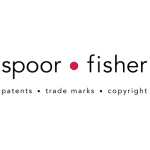In 2019 the Mauritian authorities published new IP legislation, the Industrial Property Act 2019. It has now been announced that the legislation is anticipated to come into force in February 2022.
The changes significantly modernise IP law in Mauritius, and bring it into line with international standards.
Some noteworthy features of the new legislation are as follows:
Patents
Computer programs are specifically excluded from patent protection;
The test for novelty is an absolute one;
Although the employer owns patents created by employees, there is provision for employees to receive ‘appropriate compensation’ where the economic gains made by the employer/patentee are ‘disproportionately high’;
Substantive examination will take place;
Opposition is possible;
The patent term is 20 years; and
There are provisions for Patent Cooperation Treaty filings.
Utility models
Novelty: the test is an absolute one;
Substantive examination will take place;
Conversion from a patent to a utility model (and vice versa) is possible; and
There is provision for invalidation, but not for opposition.
Industrial designs
Protection of designs is limited to 20 years.
Lay-out designs
There is provision for protection in cases of originality and commercial exploitation not exceeding two years.
New plant varieties
There is provision for protection for nationals and companies registered in countries that belong to the International Convention for the Protection of Plants (UPOV).
Trademarks
The definition of trademarks refers to marks that are ‘visually perceptible’ and specifically includes colour and shape;
Opposition is possible;
Well-known marks will be protected;
Madrid Protocol: there are detailed provisions regarding international registrations; and
Non-use: the term is three years.
Geographical indications
There are provisions for the protection of geographical indications.
IP administration
There will be three separate bodies: the Intellectual Property Council (an advisory body), the Industrial Property Office (the registry), and the Industrial Property Tribunal (a court that deals with appeals from the registry).
The new legislation is a welcome development.
Jennifer Colantoni
Director, Spoor & Fisher












